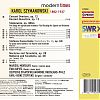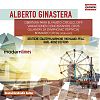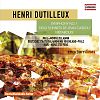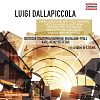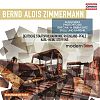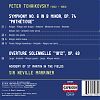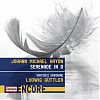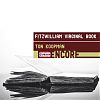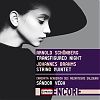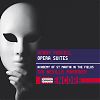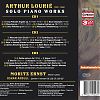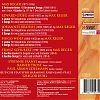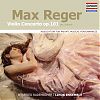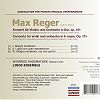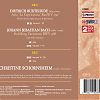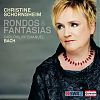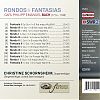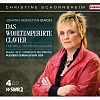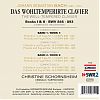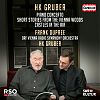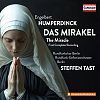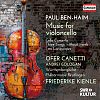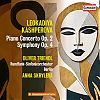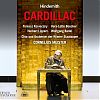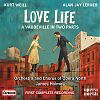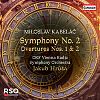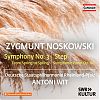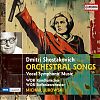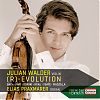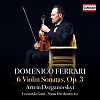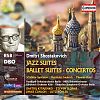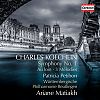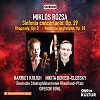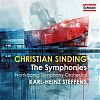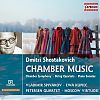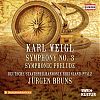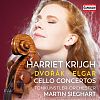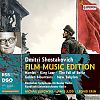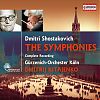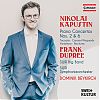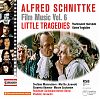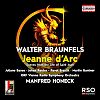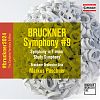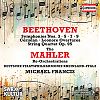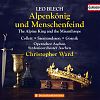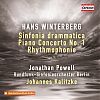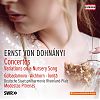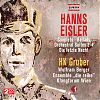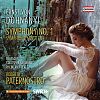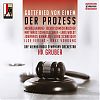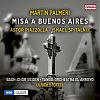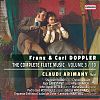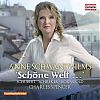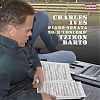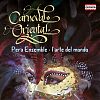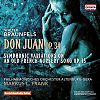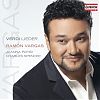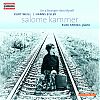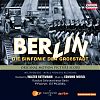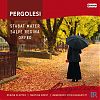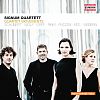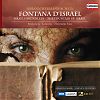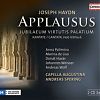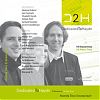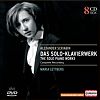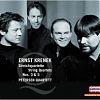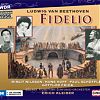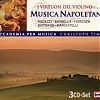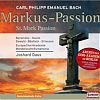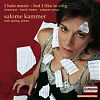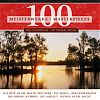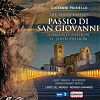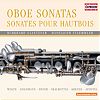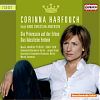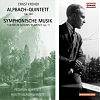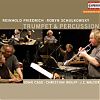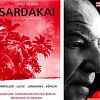cd

KAROL SZYMANOWSKI
MARISOL MONTALVO · EWA KUPIEC · DEUTSCHE STAATSPHILHARMONIE RHEINLAND-PFALZ · KARL-HEINZ STEFFENS
He ranks as one of the many lone wolves and practically outsiders in music, as one of those composers thoroughly familiar to pundits, but whose works were all too often ousted from the concert repertoire by more popular contempories. A clear ‘progression’ can be discerned in Szymanowski’s musical development. Whereas he was influenced by late Romantcism in his earliest works, after the middle of the First World War (i.e. the time of his return home) he was particularly attracted to Impressionism. From the works of this period on, he still remained committed to tonality, but goes to its very limits. Moreover, the orchestral works are usually accompanied by a lush and beguiling ecstasy of colours paralled most likely in the music by Alexander Scriabin.
Youtube
Weitere Bilder

PETER TCHAIKOVSKY
Academy Of St Martin In The Fields · Sir Neville Marriner
CAPRICCIO Encore is a series of re-releases of the most famous recordings from CAPRICCIO’s back catalogue, fully re-mastered and competitively priced. The legendary recordings of artists such as Sandor Végh, Ton Koopman, Sir Neville Marriner and the Vienna Boys’ Choir also contain repertoire highlights that have a particularly special appeal, from the baroque to the present day.
Weitere Bilder

ARTHUR LOURIÉ (1891-1966)
Moritz Ernst, piano
COMPACT DISC 1
Cinq Préludes fragiles op. 1 (1908-1910) · Deux Estampes (1910)
Mazurkas op. 7 (1911-1912) · Quatre Poèmes op. 10 (1912-1913) · Deux Poèmes op. 8 (1912) · Masques (Tentations) op. 13
COMPACT DISC 2
Menuett (nach Gluck) (1914) · Synthèses op. 16 (1914) · Formes en l‘air (1915) · Dvevnoj uzor (Tagesordnung) (1915) · Rojal’v detskoj (Klavier im Kinderzimmer) (1917) · 3. Sonatine (1917) · Upman (Smoking Sketch) (1917) Nash Mash (Our March) (1918) · Toccata (1924) · Valse (1926)
COMPACT DISC 3
Petite suite en fa (1926) · Gigue (1927) · Marche (1927) · Nocturne (1928) Intermezzo (1928) · Berceuse de la chevrette (1936) · A Phoenix Park Nocturne (1938) Ošibka baryšni smerti (Der Irrtum der Frau Tod / Death’s Mistake)
MORITZ ERNST, Klavier / piano
OSKAR ANSULL, Sprecher / narrator
When we endeavour to grasp the composer Arthur Lourié, we encounter some difficulties. He was born as Naum Izrailevich Lur'ya in 1892, according to his own statements and documents, but there is also evidence for 1891. At the age of 21, the born Jew converted to Christianity; he was a charismatic bohemian and Soviet cultural politician who did not return from a so-called official journey to Berlin in 1922 and was a pioneer of Modernism in music, enjoying mingling among the poets and painters of the Silver Age and being inspired by them. His musical oeuvre is just as multi-faceted and diverse. During his years in Russia, he composed the most differing works next to one another, true to the precept of his role model Ferruccio Busoni that a composer should never repeat himself and has to find a new artistic solution for every work, as it were. But the pieces from his exile in France (1924-1941) paradoxically often sound more Russian than those written in Russia. However, Lourié’s 10-year collaboration and partly also friendship with Igor Stravinsky interestingly found no expression in his piano works. Stravinsky’s percussive piano style remained alien to him.
Weitere Bilder

MAX REGER: ORCHESTRAL SONGS
Deutsche Staatsphilharmonie Rheinland-Pfalz · Gregor Bühl
Up to today, it has largely remained unnoticed that Max Reger, who enlarged his oeuvre work by work in literal ‘piece work’, again and again turned to arranging works by others in order ‘to recuperate’ from his own composition. Whereas Reger’s original works for voice and orchestra are mainly related to the genre of the orchestral song with a tradition cultivated in France, but also in England, the arrangements were largely composed following performance-technical considerations.
Weitere Bilder

CHRISTINE SCHORNSHEIM
Bach: Goldberg Variations
‘Like for many harpsichordists and pianists, for me, too, the Goldberg Variations rank among the most significant works of clavier literature. I listened to my first recording, produced 25 years ago, only to notice that over the course of the years I have remained true to myself in many respects. On the other hand a process of maturation has taken place, the outcome of which I now indeed wanted to document, simply because the variations are a part of my life. Linking the Goldberg Variations to La Capricciosa by Dietrich Buxtehude originated in an idea that had established itself in my mind for many years.’
Christine Schornsheim


